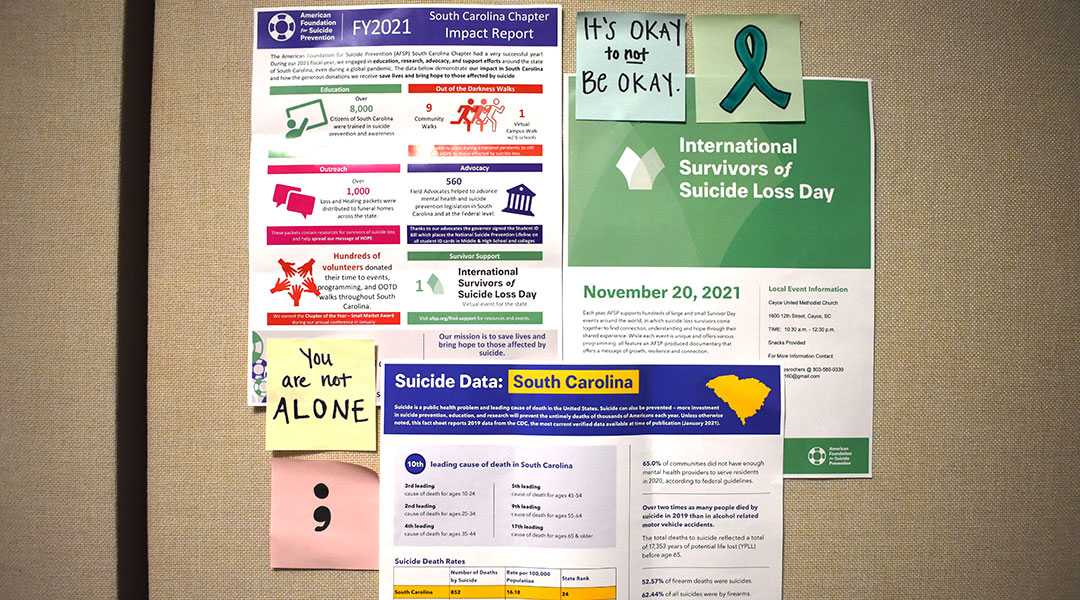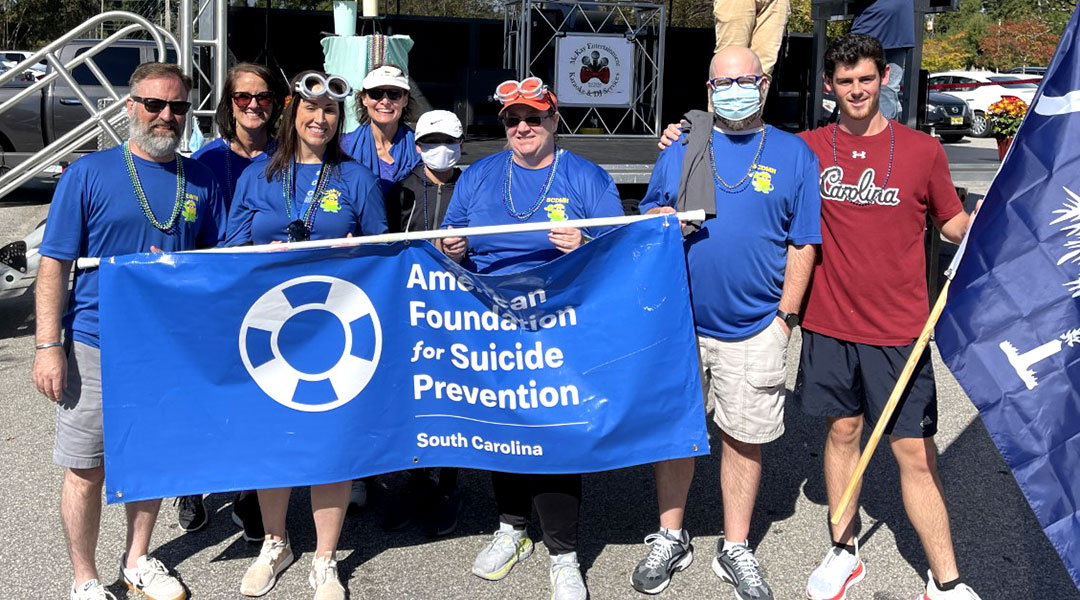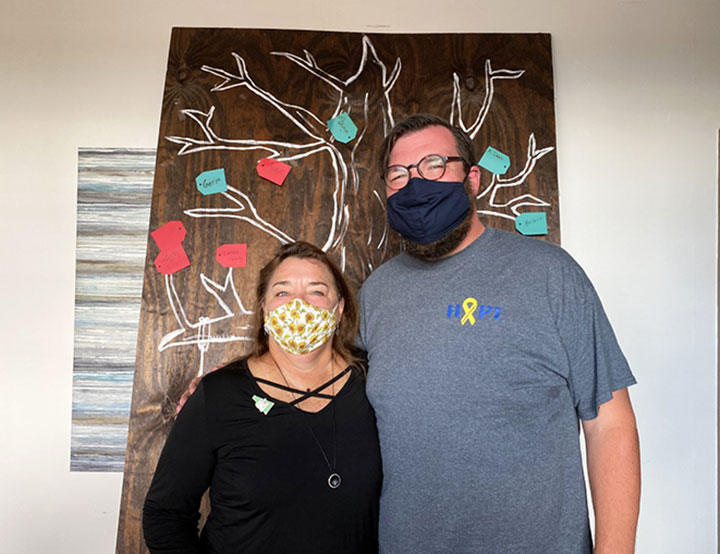If you or anyone you know if struggling, please call the 24-hour National Suicide Prevention Hotline: 800-273-8255, or visit the full list of resources at AFSP.org/suicide-prevention-resources. Photos by Julie Crosby
In 1998, Julie Desrochers lost her husband to suicide. Fifteen years later, she lost her best friend in the same way.
In navigating her grief, Desrochers turned to the American Foundation for Suicide Prevention. She is now an official co-chair, helping others find the same support she needed then through events like Sunday’s Out of the Darkness Community Walk.
The AFSP hosts its annual Columbia community walk to help survivors of suicide loss and supporters find community through tragedy, hoping to fulfill its mission to “Save Lives and Bring Hope to Those Affected by Suicide.”
“That’s what AFSP did for me,” Desrochers said. “There are so many resources and programs and it’s just amazing that I’ve seen it grow so much because in 1998, nothing. It was swept under the rug. I didn’t know what to do.
“My daughter stated yesterday that she watched me go into survival mode. Really, what I was doing was protecting my children.”
Issues surrounding the topic of suicide and mental health include shame and embarrassment from people struggling. However, according to a study done by the American Psychological Association, 87% of American adults agree that having a mental health disorder is nothing to be ashamed about.
“It is my passion because suicide is preventable. It’s not curable, but it’s preventable,” Desrochers said.
AFSP provides an extensive resource list for people in many different mental health scenarios whether that be crisis situations or people just looking for support.
Survivors are searching for personal connection to navigate what Desrochers calls, “a very complex grief.” The lack of a common thread between her and the rest of the community led her to step away from the program briefly to find a more common bond.
“Even though I was with survivors, I hadn’t met anyone who had lost a spouse,” Desrochers said.
After a brief hiatus, Desrochers returned to the community with a newfound appreciation for human connection. Through handwritten letters and other means of communication, she has formed meaningful and long lasting relationships built on a foundation of empathy and most of all, support.
“In my daughter’s words, learn to be a good listener,” Desrochers said.
John Tjaarda, South Carolina area director of AFSP, said, “You don’t have to walk on eggshells and if you know someone who’s had a loss, they want to talk about it again and again.”
“Suicide used to be a dirty word,” said Tjaara, who attributes some of the destigmatization of suicide awareness to a spotlighted media presence.
Celebrity athletes like Hayden Hurst, Dak Prescott and Simone Biles have been outspoken about mental health in recent years which has opened doors for the conversations to transcend what was previously considered a societal blemish.
“Simone during the Olympics saying, ‘I’m not in the right mind space and I need to take time for myself,’” said Tjaara. “It’s okay to not be okay.”
“It’s OK Not to Be OK” became the mantra in 2018 for the non-profit online platform known as the #OkayMovement. Since creation, the movement has reached nearly 800,000 online users.
In S.C. for people ages 10-24, suicide is the third leading cause of death and for people ages 25 – 34 it is the second leading cause of death.
Tjaara said the inclination to keep quiet about mental struggle is a “tornado” that eventually spirals out of control until people are no longer able to ask for help.
The University of South Carolina aims to target this issue directly by offering of counseling and psychiatry services both virtually and in person. The University Health Services website offers a free, anonymous mental health screening program created by AFSP to provide real-time counselor feedback to better help students with immediate needs.
“The more we talk, the more we’re open, the more we let it out, the better prepared we’ll be to save ourselves and help somebody else,” said Tjaara.
Minions of Hope from the South Carolina Department of Mental Health, and Trent Dumon with Theta Chi, were the top group and individual donors of the day. Photo Courtesy of Julie Desrochers
John Tjaarda and Julie Desrochers, two of the staff members who organized the Out of the Darkness Columbia Area Walk, helped to raise $46,570 for the American Foundation for Suicide Prevention.
ABOUT THE JOURNALISTS
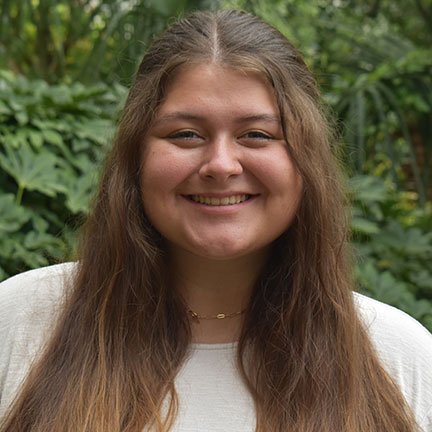
Julie Crosby
Julie Crosby is a fourth year multimedia journalism student from Charleston, South Carolina. As a former South Carolina State House intern, Crosby is particularly invested in writing stories that combine her passion for politics and education. She hopes to tell the stories of educators who are advocating for continued policy improvement for students in South Carolina. In her free time, Crosby enjoys reading and spending time with family and friends.
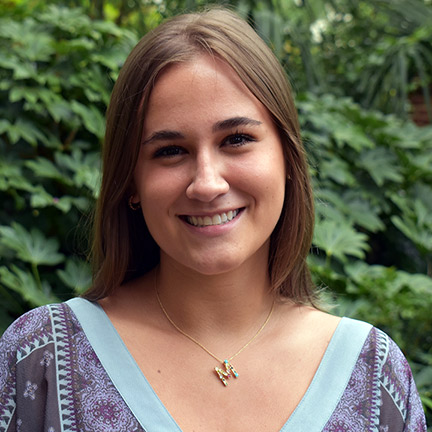
Meghan Hurley
Meghan Hurley is an aspiring multimedia journalist in her senior year from Raleigh, North Carolina. As a young girl, she established an unwavering passion for storytelling, especially for the underdog. Her passion has translated into a general life approach of empathy, and patience, but more importantly, resilience. She depends on her love for human connection to aid her creative approach as she strives to bring a modern twist to her craft. Hurley’s personal work highlights her innate ability to tether thoughts to reality as she dives into discussions of mental health and relationships through an imaginative lens.

